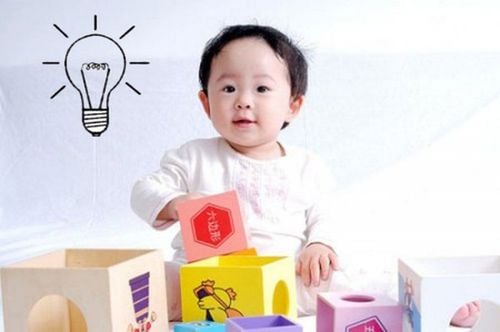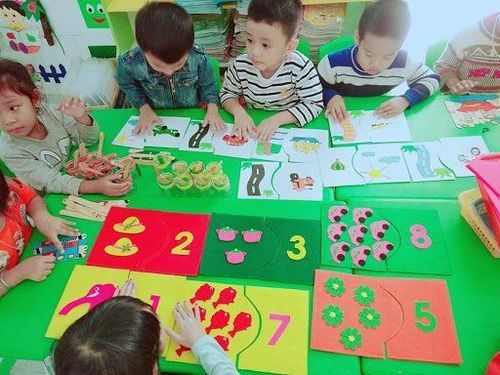This is an automatically translated article.
Content is professionally consulted by Master Music Therapy Technician - Regenerative Medicine Clinic and Educational Psychology Unit - Vinmec Times City International Hospital
Young children often like toys that make sounds, they not only create excitement through fun music, but also make them curious, want to learn and explore. Children with autism are the same, but each child will have different symptoms.
1. The role of musical instruments in children with autism spectrum disorder
For example, when listening to a familiar tune, some friends are dancing, some friends are standing still, some friends, their eyes are absentmindedly looking around but their ears are still listening attentively, or you are turning towards the source. good sound or others close your ears tightly...
And music therapists need to be very sensitive to give continue or stop, choose the right sound, volume, intensity, genre to impact on the child. Because music for autistic children is not an easy bridge to everyone and if used in the wrong way, the invisible consequences we can't predict.
2. Children with autism spectrum disorder who are interested and curious about music should do what?
Here are some small suggestions to create social interaction through music therapy for children with autism with children:
2.1 Press some function keys on the piano to make them make different sounds. The child's attention at this time is the sound and the toy makes noise, so don't distract or delay your curiosity with your words, the child will become bored and lose attention. So you should have an encouraging attitude with your voice (Wow! Oh! That's great!...) and facial expressions that show encouragement and encouragement when your child discovers something new.
2.2 Imitation of Sound Sound On toys that make sounds or musical instruments often have the sounds of animals, vehicles, drums, trumpets, etc. Children's attention by speaking loud, low, long, short... begin to build interactions through short eye contact.

2.3 Create a situation for the child to communicate While the child is not paying attention, turn off the instrument, let the child ask for help from an adult (make eye contact, hold hands, point, speak...). When your child has a signal to react and respond, turn on the instrument so that the sound comes out immediately. Stay connected by playing music while singing a song or a short tune your child loves.
2.4 Imitating the actions/sounds the child makes To shift the child's attention and interest from objects to communicating with others, it is always an effective way to imitate the actions and sounds the child makes while playing. fruit. You can also exaggerate the action/sound by speaking a little louder and showing emotion on your face. Remember, be child-centered and let them lead, not ask them to follow the actions of adults.
2.5 Identify musical instruments that your child likes/dislikes Children with autism are always interested in and pay attention to items that they really love. Observe and record what your child's favorite musical instrument is made of, how the sound comes out... because not all musical instruments make children interested. There are people who love the sound of drums and piano but are very afraid of the shrill jingle of instruments made from copper and iron (eg Tamborine, xylophone...) from musical instruments but do not like to hear singing. Some children have a bad impression of certain songs because in their memory there are unpleasant experiences associated with the tune (for example, lullabies because she knew she had to go to sleep after hearing that song, so she couldn't sleep). prefer).
Above are some suggestions for developing social interaction skills and creating relationships between therapists when initially wanting to get to know and connect with children with autism. After creating trust and wanting to use music for children with autism, to help them relax or train their attention, you can learn more through the next article.
Please dial HOTLINE for more information or register for an appointment HERE. Download MyVinmec app to make appointments faster and to manage your bookings easily.













